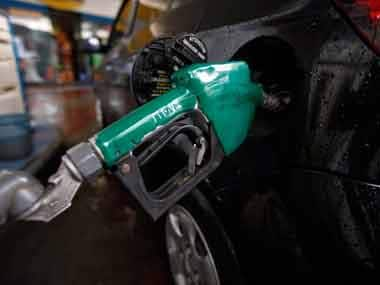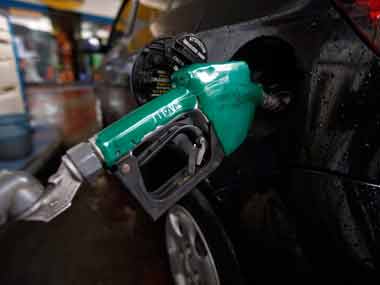**Washington:**The International Monetary Fund (IMF) had lauded India’s efforts to cut fuel subsidies, saying the fall in global crude oil prices provides a golden opportunity to reduce energy subsidies. While speaking about the outlook for the global economy in 2015, IMF Managing Director Christine Lagarde said that the drop in oil prices provides a golden opportunity to cut energy subsidies and use the savings for more targeted transfers to protect the poor. “We have recently seen a successful decrease in fossil fuel subsidies in countries such as Cameroon, Cote d’Ivoire, Egypt, Haiti, India, Indonesia, and Malaysia,” she said. The government, in October last year, deregulated diesel prices. Following the decision, retail prices of the fuel now reflects international movement in oil prices. [caption id=“attachment_2051951” align=“alignleft” width=“380”]  Representational image. AFP[/caption] In 2013-14, government provided Rs 70,772 crore by way of cash subsidy while upstream firms Rs 67,021 crore towards subsidising fuels such as diesel, LPG and kerosene. Aided by global crude oil price plunge – the lowest since 2009 – government expects the oil subsidy bill to be dropped by 60 per cent in 2014-15. On infrastructure investment, Lagarde said India needs to focus on removing bottlenecks in rransportation and energy sector that constrain the growth prospects. Lifting quality infrastructure investment is a major part of the G-20 growth agenda, which is estimated to add more than USD 2 trillion to the global economy over the next four years, she said. “IMF research shows that increased public infrastructure investment raises output in the short term by boosting demand; and in the long term by raising the economy’s productive capacity. “India and Brazil, would need to focus on removing bottlenecks – in transportation and energy – that constrain their growth,” she said. PTI
The government, in October last year, deregulated diesel prices. Following the decision, retail prices of the fuel now reflects international movement in oil prices.
Advertisement
End of Article
Written by FP Archives
see more


)

)
)
)
)
)
)
)
)



